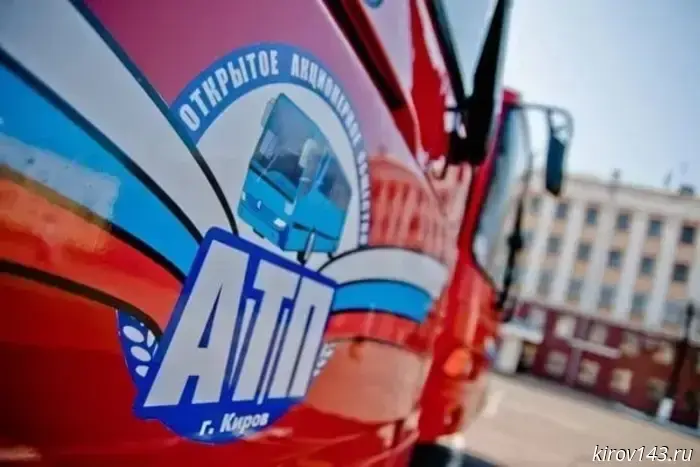
About Vyacheslav Simakov and "ATP": wouldn't it be good not to come faces with ourselves during the investigation?
The version of "the decline of the city manager's political career" was confirmed after Simakov's statement at the meeting of the standing Duma Committee that the "sold premises of AТП at Proizvodstvennaya, 45 were not needed by the enterprise. The sale serves noble purposes: 'Eliminating debt, not accumulating, not paying interest... Selling — that's all,'— but in reality, it is a 'heartfelt admission' without remorse, knowingly causing significant and long-lasting damage to the transportation company, which is the de facto monopolist of city passenger transport.
'If this is not yet another poorly thought-out schemes of Simakov: sell everything — divide the money, then the remaining assumption is that Vyacheslav Nikolaevich fully misunderstands the positive dynamics of the city’s financial strategy, which disapproves of 'spreading millions to save on matches.' Of course, unless one refers to the 'progressive forgetfulness' or the permanent amnesia of the current city manager.
Back in 2021–2022, Denis Pyrlog, then director of AТП, openly stated that if the bus depot were sold entirely and for good money, the financial sense, although shortsighted, was clear. But if it is squandered in parts, it is outright stupidity or plain corruption. Because the tenant or owner of individual structures: the garage, repair zone, car wash, only bears responsibility 'for their own,' while AТП continues to pay for the entire complex—from security personnel at the gates to electricity, water supply, network maintenance, and taxes.
'It's like any of us selling our apartment but still being responsible for paying all utility bills. And until the end of time, we would be cleaning the entrance, re-stretching the floors, re-gluing wallpapers, and changing the toilet which the buyer does not like,'— noted Pyrlog.
Pyrlog’s opinion from three years ago was confirmed by 'financial sources' from the city administration, who stated that 'the dismantling of assets at Proizvodstvennaya, 45 (former PATP-3) is a game for their own gates':
'Yes, this base did not generate much profit for AТП, but if today the government is actively talking about expanding the bus fleet and improving service quality, then why are the repair zone, garage, and parking lot no longer needed? And Denis Erohin (Chairperson of the Committee on Economics and Entrepreneurship) was right a hundred times when he asked, why were they sold? And when everything is distributed, where will the buses be parked? On the street or in drivers' yards?'
Meanwhile, the interlocutor emphasized that the attempt by the administration to 'quietly sell part of the structures of the former Trolleybus Park,' which deputy Erohin openly announced, they consider a crime:
'Leasing premises and buildings on Shorsa street, 62, brought AТП tens of millions of rubles annually. But selling the base 'piecemeal' will lead the enterprise to a stable, irreparable 'minus.'
We have been through this before.
If we recall some of the history of repeated attempts to ruin AТП, the scenes from the 'Bykov period of governance' immediately come to mind, when Vladimir Vasilyevich began 'dividing' territories and premises belonging to AТП. Under Bykov, who considered the enterprise as some sort of personal wallet, good garages, car washes, and dispatch offices were leased for next to nothing or given away for free. The rampant sale was halted then by the initiation of several criminal cases and convictions, but that did not permanently stop bureaucratic interest in selling off 'desirable pieces of AТП.'
Recall that in August 2014, on Shorsa street — at the location of the Trolleybus Park dispatch office — a café 'Praga' was opened on a rental basis, owned by Gasanoz Elmadbin Gusein oglu. Soon after, when the shashlik establishment acquired new architectural features like an upper floor, hookah lounge, sauna, and rooms for privacy, it turned out that the land plot was allegedly sold to Gasanoz without approval from AТП management and city authorities. And the proceeds from the deal... disappeared into someone’s private pockets.
At that time, investigators were actively interested in potential accomplices of Vladimir Bykov, who so actively favored the 'Azerbaijani diaspora' that he 'probably gifted' a capital building on Kalinina street (near the MFC) to serve as the Representative Office of the brotherly people. Which hardly connected even for a month with the political ties to Kirov residents, and was converted into a store rented out to 'Magnit.'
It was unconvincing to claim that the sale of the dispatch office and the appearance of 'Praga' was not coordinated with the then head of the Department of Municipal Property (DMS), Natalia Mamedova, who leased out buildings on the 'red line' at throwaway prices to the 'diaspora.' Later, she wrote off municipal debts—unpaid by tenants—at the expense of the city budget. This was repeatedly confirmed by the new head of DMS, Vadim Tokarev.
Among those 'of particular interest to the investigation' were not only Natalia Mamedova (now Rozhdestvenskaya) and Kirov City Duma deputy Alexander Grigoriev, but also AТП head and deputy director Nikolai Dubrovkin and Anatoly Krivolapov. Later, Krivolapov, Nelyubin, and Bykov were sentenced with obligations to compensate the enterprise for damages totaling 22.6 million rubles.
Over time, Ilya Shulgin, who also used the AТП purse, showed no surprise that the enterprise intended to purchase buses at one and a half to two times the cost, a plan thwarted by one of his deputies, then a member of the company's Board of Directors.
Shulgin also showed no interest in why none of the fifteen or so new trolleybuses, produced in a 'summer version'—without passenger compartment heating—were able to enter service. The only one, on which Ilya Vyacheslavovich 'opened the way,' was only able to leave the garage gates and reach the turn to Oktyabrsky Prospect.
Furthermore, Ilya Vyacheslavovich constantly confused personal transport with AТП vehicles, driving swiftly to Kazan and back, both to visit his homeland and to watch games of his favorite teams. When Erohin accumulated enough kompromat for the investigation, Nikolai Volkov, the new director — a protégé of Shulgin — loaded his personal car with documents and 'fled' from Kirov.
It is clear that Shulgin’s successor, Dmitry Osipov, did not try to sell anything cheaply from AТП, and the 'guilty' was, of course, company director Denis Pyrlog. Who, seemingly unwittingly, awakened bureaucratic 'sales modesty' as he nearly daily gave interviews about his plans to lift his enterprise out of 'financial bottom.' Selling AТП assets was not part of his plans.
But after Pyrlog left the director position—in March 2022, after reporting a profit of 70 million rubles for the year—Osipov... dismissed Denis Yuryevich. Probably by then, the 'bureaucratic brotherhood,' having shaken off their modesty, decided to take out loans for 100–150 new buses. But the deal fell through because wholesale suppliers, like banks, realized that purchasing a large batch of buses during the 'pandemic period,' when passenger flow dropped to almost zero, through a 'conduit firm,' smelled strongly of 'scam.'
A secret for such a small company.
A particular interest in the current realities of a sinking enterprise, which a week earlier Denis Erohin called a 'dump,' referring to both management and curators, is now the former director of AТП (from April 2025), Dmitry Katynov, who probably got the position as 'former driver of Mikhail Sandalov' (now head of the regional government).
During his just over two-year leadership of AТП (from November 28, 2022), Katynov achieved a lot: significantly increased the 'management staff,' regularly supplemented by Vyacheslav Simakov, and practically destroyed the repair zone—allegedly, workers took equipment home, and if they wanted to fix buses, they should bring tools from home.
Katynov pursued austerity by cutting employees' wages but not the management team, so dismissals of drivers and conductors reached a critical level. Also, despite reports of steadily growing profits, the enterprise fell into a tax debt hole, owed utilities, and especially electricity bills.
On March 17, at noon, all trolleybuses in Kirov stopped—power outages on the networks became the final warning for non-payment of electricity (a week earlier, Katynov received an order specifying the date and time of disconnection). The 'net debt' of AТП—excluding penalties and fines—amounted to 39 million rubles (for three months).
On the same day, at 13:45, Deputy Chairman Alexey Zherdev explained to Newsler.ru that an agreement was reached with 'Energosbyt'—electricity would be restored soon, and trolleybuses would run. However, the funds allocated from the regional budget to settle the 'electricity debt' probably went to the tax office to cover arrears. This, perhaps, was the 'last straw' in Dmitry Vasilyevich’s managerial activity. After his departure, it turned out he was gathering kompromat on Vyacheslav Simakov as part of his 'personal investigation.'
According to deputies, the materials concern the activity of AТП's commercial director, Vladimir Repin, who, after working as deputy head of the Department of Urban Economy for two months, was appointed in May 2023 to a new, recently created position personally by Vyacheslav Simakov.
It was revealed that, probably, Repin saw the enterprise's commercialization very differently, signing lease agreements with his wife Maria for two sports halls and a sauna, supposedly at undervalued prices. His wife's activity of subletting sports facilities hourly increased the family budget. Katynov responded uniquely: he terminated Repin’s employment contract, replacing it with a contract for work.
By the way, when a deputy asked the new director of AТП, Vladimir Byzov, why the materials were not handed over to the authorities, since Repin's activities, considered in a 'criminal sense,' involve not only 'conflict of interest' but also possible 'abuse of power,' he said he would limit himself to 'official investigation.' That puts Byzov himself in an awkward position because his duties include 'reporting crimes' to law enforcement agencies, which will decide whether to pursue the case or dismiss it as 'refusal material.'
'Who would doubt that Byzov would not go against his benefactor and employer Vyacheslav Simakov, who recommended Vladimir Germanovich as director of AТП, saying: he knows nothing about transport, but he’s a good person.' If an official investigation begins at Byzov’s initiative, there is a high risk that Simakov himself would come into the process,'— commented deputies.
It is noteworthy that Vladimir Byzov’s previous work—active in Slobodskoy in leasing and managing his own and leased property, as well as dismantling and demolishing buildings—makes him the optimal candidate to execute Simakov's task to 'sell everything unnecessary.' The degree of 'need' or 'unneed' of parts of AТП’s property complex today is personally determined by Vyacheslav Nikolaevich, not the 'know-nothing about transport' enterprise director.
Interestingly, Byzov’s employment again indicates the current 'personnel shortage' in the city administration, as the head of the main municipal passenger company was entrusted to someone who ran a sole proprietorship with an annual turnover of no more than one and a half million rubles. Meanwhile, AТП’s turnover is about one and a half billion.
Incidentally, the workers of the enterprise, where Byzov, like his predecessor, has only 'increased the management staff by five or six people' and begun liquidating property, assessed 'his professionalism' by comparing Vladimir Germanovich to former procurement department head Anatoly Krivolapov (the son-in-law of the most trusted Bykov figure, Sergei Medovikov), who—no joke—believed that for saving costs, worn-out bearings in buses could be replaced with wooden ones.
Другие Новости Кирова (НЗК)
 Love horoscope: Geminis don't need to distract their loved one, and Libras don't need to make plans.
Astrologers revealed how each zodiac sign's personal life will unfold this coming Saturday.
Love horoscope: Geminis don't need to distract their loved one, and Libras don't need to make plans.
Astrologers revealed how each zodiac sign's personal life will unfold this coming Saturday.
 "Your money is going to fund Ukraine": scammers tried to deceive a Kirov pensioner
A 74-year-old resident of Kirov almost transferred 750,000 rubles to scammers posing as communication, prosecutor's office, and Investigative Committee employees. The woman's alertness and assistance from bank employees saved her.
"Your money is going to fund Ukraine": scammers tried to deceive a Kirov pensioner
A 74-year-old resident of Kirov almost transferred 750,000 rubles to scammers posing as communication, prosecutor's office, and Investigative Committee employees. The woman's alertness and assistance from bank employees saved her.
 It's expected to be +30 in Kirov on Saturday.
Gismeteo.ru portal published the weather forecast for Saturday, August 2.
It's expected to be +30 in Kirov on Saturday.
Gismeteo.ru portal published the weather forecast for Saturday, August 2.
 Libra should take action, and Sagittarius should change.
Astrologers revealed what all zodiac signs can do on the first day off of this week.
Libra should take action, and Sagittarius should change.
Astrologers revealed what all zodiac signs can do on the first day off of this week.
 Families with children are offered "mortgage holidays."
Speaker of the State Duma Vyacheslav Volodin has sent a draft law to the relevant Committee, which will provide additional support to families with children.
Families with children are offered "mortgage holidays."
Speaker of the State Duma Vyacheslav Volodin has sent a draft law to the relevant Committee, which will provide additional support to families with children.
 Five cars collided at the turn to Murugino.
According to the State Traffic Safety Inspectorate of the Kirov region, traffic on the highway is partially restricted.
Five cars collided at the turn to Murugino.
According to the State Traffic Safety Inspectorate of the Kirov region, traffic on the highway is partially restricted.
About Vyacheslav Simakov and "ATP": wouldn't it be good not to come faces with ourselves during the investigation?
According to the city council deputies, perhaps sensing his "imminent departure from office," Vyacheslav Simakov "began liquidating the profitable assets" of the "Auto Transport Enterprise," which could lead the company not to a financial breakthrough but rather to a collapse.
